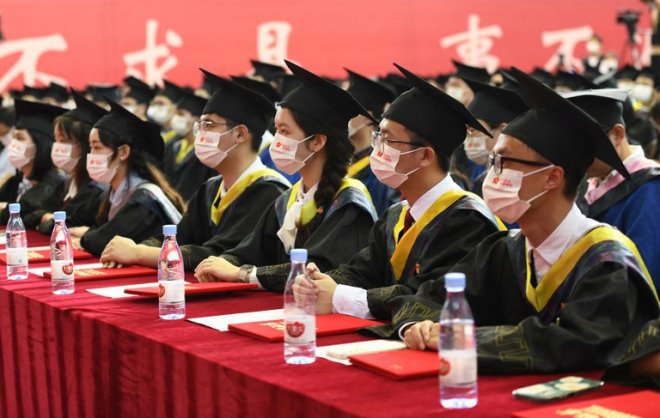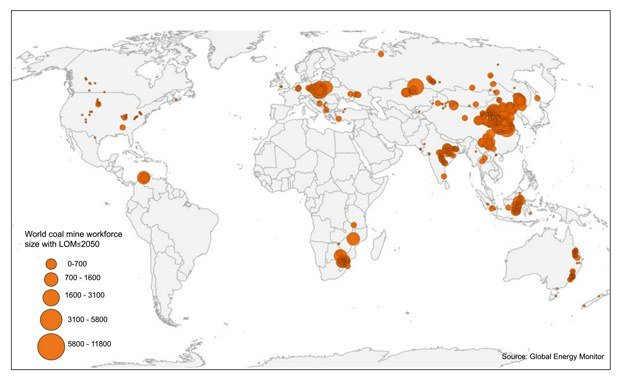China's youth face dismal job prospects
Xu Ke, 21, comes from a long line of university lecturers.Yet his peers and people a few years older than him are all struggling with a major crisis in their lives: growing competition for a dwindling number of jobs as youth unemployment tops 20%, driven by a huge downturn in manufacturing and foreign investment.
"There aren"t many jobs, and the competition for the jobs there are is too strong," said Xu, who is currently studying at a university in Minnesota. "Everyone is willing to do any job."
"With everyone willing to do anything, wages are [kept] low, and benefits are poor," Xu told Radio Free Asia in a recent interview.
Before the pandemic, most of his peers would once have expected to study for a teaching or liberal arts degree, before going on to land jobs as elementary and secondary school teachers.
But those days are long gone, Xu said, adding that the 20.4% unemployment rate among people aged 16-24 reported by the National Bureau of Statistics for April was likely only the tip of the iceberg.
"I would guess that the proportion of young people who can"t find a job at all is likely to be between 40 and 50%," he said.
"After all, not everyone [with parents who work in the government] system can even get into senior high school, and not everyone in senior high school can get into college," he said. He cited a government quota introduced in 2021 requiring 50% of junior high school students to take up places in technical and vocational schools, rather than senior high school.
Before the policy was introduced, around 60% of junior high-schoolers would have gone on to senior high, where they would then be eligible to take the grueling "Gaokao" university entrance exam.
Shut out
Some of Xu"s friends have now effectively been barred from a university education, and from the white collar jobs that education prepares them for.
Shut out of the system that raised them, they are forced to look for blue-collar jobs instead.
"Wages [in blue-collar jobs] are very low, and there is a lot of strenuous physical labor," he said. "Some people can"t do it, or they can"t find [even blue-collar] jobs, so they basically spend their time waiting to get old."
 Graduating students wearing face masks attend a commencement ceremony at Chongqing University of Posts and Telecommunications in Chongqing, China, on June 22, 2022. Credit: Reuters
Graduating students wearing face masks attend a commencement ceremony at Chongqing University of Posts and Telecommunications in Chongqing, China, on June 22, 2022. Credit: ReutersFor 30-year-old Shan Wentao, it"s a familiar scenario.
Born into a working-class family in the eastern province of Anhui, Shan says even his peers can"t find work in the current economic environment, with dwindling opportunities in manufacturing and sharp falls in foreign investment.
"I tried to get a shift on a construction site, but there are more people [available to work] in the industry now, and the wages are getting lower and lower, while the work is pretty backbreaking," he said.
One of Shan"s friends did land some construction work, but only lasted a few months due to health problems and non-payment of wages.
Yet for young working class people, "lying flat" – essentially doing nothing while living at home – is less of an option than it is for their counterparts with higher-level qualifications, as many are already married, and can"t live back home with mom and dad.
"There"s nothing to be done about it," he said. "I get the impression they don"t want to do these jobs, but what else can they do?"
‘Revitalizing the rural economy’
A woman who gave only the surname Chen said she has a 17-year-old relative who is despondent about life after she graduates from vocational school.
"She says the teaching in the technical school is so bad that she isn"t learning anything, and that she"ll earn very little after she graduates," Chen said. "She says it"s easier just to lie flat."
"She doesn"t want to do manual work, because it"s too tiring, but her family doesn"t have the resources to send her to study overseas," she said. "She is desperate, and confused about the future."
National Bureau of Statistics spokesperson Fu Linghui told a news conference on May 16 that "the relevant departments are proactively introducing policies to provide targeted assistance" to help young people into work.
But media reports pointed to a rising number of college graduates in recent years, coupled with residual unemployment from previous years.
President Xi Jinping has called on young people to be less picky about the jobs they"ll accept, as well as lauding those who return to rural areas to "revitalize the rural economy."
But his exhortations have fallen on deaf ears as the middle class cash out of the Chinese economy and join the "run" movement, seeking a new life overseas, often via political asylum in the United States.
"During the Mao era, the Chinese government promoted the relocation of educated urban youths to the countryside, through a combination of heavy political propaganda and various kinds of political pressure," U.S.-based economist He Qinglian wrote in a recent commentary for RFA Mandarin.
But while more than 12 million have done so in recent years, the numbers don"t amount to much when taken alongside the hundreds of millions of rural residents who continue to move into China"s cities to find work.
"Of course the Chinese government knows very well that it won"t be able to get rural youths who have experienced the simplicity of urban life to pick up their hoes and bend themselves double over the land again," He wrote, citing the rise of "Taobao villages" as people run online shops from rural locations.
 People attend a job fair in Fuyang, Anhui province, China, on Jan. 29, 2023. Some online commenters are complaining about the lack of good jobs after years of personal investment and sacrifice to get them a university education. Credit: Reuters
People attend a job fair in Fuyang, Anhui province, China, on Jan. 29, 2023. Some online commenters are complaining about the lack of good jobs after years of personal investment and sacrifice to get them a university education. Credit: ReutersShe cited government balance-of-payments data as showing a 43% decline in foreign direct investment in China in 2022, compared with the previous year.
"Foreign-invested companies are gradually withdrawing from the Chinese market, which is a big blow to employment rates," she said, adding that youth unemployment rates would be higher still if the government didn"t remove people returning to rural hometowns from the figures.
Translated by Luisetta Mudie. Edited by Malcolm Foster.
[圖擷取自網路,如有疑問請私訊]
|
本篇 |
不想錯過? 請追蹤FB專頁! |
| 喜歡這篇嗎?快分享吧! |
相關文章
AsianNewsCast






















